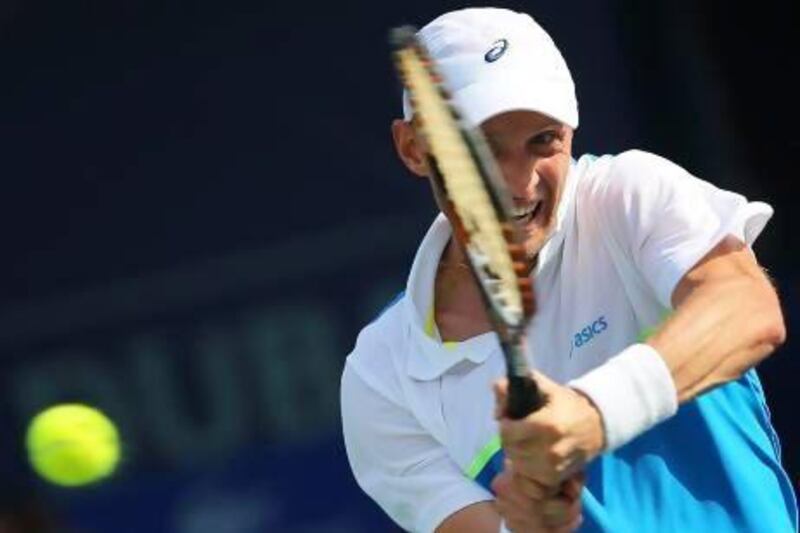For a nation that boasts four of the top 20 on the women's tour, including No 2 Maria Sharapova, and has been churning out teenagers by the dozen for more than a decade, Russia's stock in men's tennis is, rather surprisingly, on the slide.
There is not a single Russian in the men's top 25 and their best ranked players are three 30-plus veterans - Mikhail Youzhny (No 27), Nikolay Davydenko (No 41) and Dmitry Tursunov (No 66).
They have two other representatives in the top 100 - Andrey Kuznetsov (No 74) and Evgeny Donskoy (No 77), but only two of those five - Tursunov and Donskoy - were part of the Russian Davis Cup team who lost to Great Britain earlier this month. And the hosts did not even have world No 2 Andy Murray in their squad.
It was the second consecutive Davis Cup defeat for the Russians.
Last September, the two-time champions crashed out of the World Group for the first time in 20 years after a 5-0 loss to Brazil, when only Teimuraz Gabashvili could take a set off the Brazilians.
Russian men's tennis was a different beast not so long ago. They defeated France in 2002 to win their first Davis Cup title and added a second four years later.
Earlier in 1999, Yevgeny Kafelnikov became the first Russian to reach the top of the men's rankings, followed by Marat Safin a year later. Both won two grand slams apiece during their careers.
And then there was Davydenko, who had finished in the top five for four consecutive years in the past decade.
Russia, however, failed to build on that success, according to their Davis Cup and Fed Cup captain, Shamil Tarpischev, and that is the root cause for their current plight.
"It's a shame that on the wave of the first decade [the 1990s] it would have been possible to create a miracle," Tarpischev said. "But now just to return to that previous position we need to waste another decade, and only if everything goes well."
The lack of funding has been a big problem. Many promising young players have given up tennis because of it, while others such as Andrey Golubev, Mikhail Kukushkin, Yuri Schukin and Evgeni Korolev have taken up Kazakh citizenship.
"Training just one 16-year-old player costs US$200,000 [Dh734,560] per year," Tarpischev said last year. "And before he is 14, it is only $50,000 per year. That's why all the losses happen at this period. Due to the lack of financing, 90 per cent of tennis players either quit or start wandering around the world trying to achieve something and find money."
The situation, according to Davydenko, is so bad no players want to keep their association with the game beyond their playing days.
"There [in Russia] it's easier to go into business or into politics," he said.
Until this situation changes, there is little hope of arresting that slide. And very soon, it could start affecting Russia's flow on the women's tour as well.
Follow us
[ @SprtNationalUAE ]





